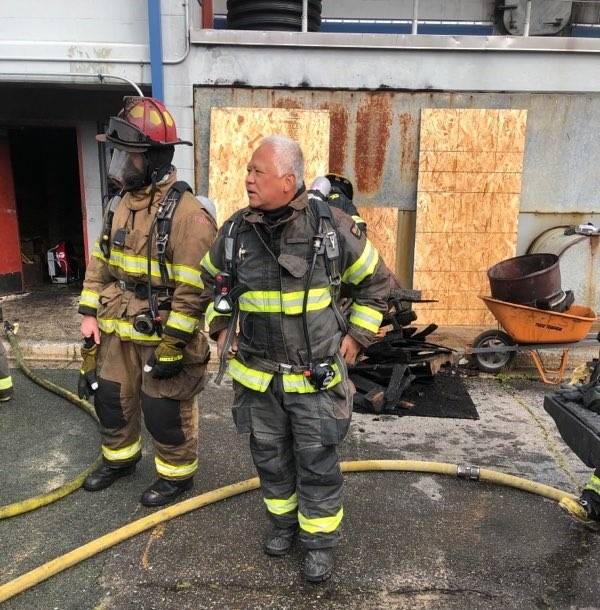This article has been updated to include new information.
Some people go their whole life without finding a job they truly love.
But as he celebrates 40 years with Capital City Fire/Rescue, it would seem Assistant Chief Ed Quinto doesn’t have that problem.
“I was just smart enough to start right out of high school, and stick with it. I started training when I was a senior in high school,” Quinto said in a phone interview. “It was a lucky break getting hired. Back then there were lots of people that applied.
Joining CCFR in 1980 after being selected, Quinto has served in all manner of jobs, teams and ranks as the CCFR modernized.
“Time flies when you’re having fun. It doesn’t feel like 40 years,” Quinto said. “I get up in the morning and I’m excited to go to my job.”
The attitude did not go unrecognized in the community.
“I worked with Chief Quinto for 21 years and I would say his greatest strength is every day is a new day for him,” said Juneau Mayor Beth Weldon in a phone interview. “There’s a smile on his face and every day is a new day.”
She wished him well for his service and for his future.
“Forty years is a long time for any public service,” Weldon said. “I hope he’s looking forward to a time of retirement where he can put his feet up and relax and maybe go somewhere warm.”
[Attorney General resigns following revelations of inappropriate texts]
Serving in his current role as assistant chief since 2012, Quinto said, he’s been part of many of the special teams within CCFR.
“Dive, ropes, water, HAZMAT; I was involved in all those teams,” Quinto said. “I like all of it.”
The service has evolved and specialized in many ways since his joining 40 years ago, Quinto said, from the introduction of the specialized teams for more technical rescues to the increased emphasis on medical training for its line members.
“We started the advancement of the EMS back in 1980 with the EMT program. Back in the early ‘70s, even mid-’70s, they had police officers driving ambulances to the hospital,” Quinto said. “In 1980, my lieutenant, Steve Pierce, who passed away recently, developed the Medic 1 program.”
The Medic 1 program was one of CCFR’s first major advances in widespread emergency qualifications, Quinto said. Now, with the increased emphasis on medical capability, CCFR became capable of more and more advanced care for casualties in Juneau. CCFR has taken on a lot of responsibility for field testing for the coronavirus, the latest in a long line of evolution.
“I was pretty fortunate to be at the forefront of the EMS field for Juneau. A lot of advanced skills, we didn’t have before. We’ve taken the ER to the field,” Quinto said. “We’ve upgraded to the paramedic level. They can do a lot more than EMTs can do. We’re pretty fortunate that our line personnel are dedicated personnel.”
EMTs provide basic care, whereas paramedics are an order of training higher, usually attending more than 1,200 hours of coursework. Paramedics, like those working for CCFR. are able to provide more advanced care to the injured. EMS calls represent roughly 85% of CCFR’s calls, Quinto said.
“We have better equipment. We have better tools. But we still put the wet stuff on the red stuff,” Quinto said in reference to firefighting. “And save lives. We’re pretty fortunate that we’ve gone this far.”
CCFR has plenty of opportunities for those willing to join up and work hard.
“It’s a good job. We always have volunteer spots, of course. A lot of our career personnel came from our volunteer ranks,” Quinto said. “And you can also join our special teams. Water rescue, rope rescue, HAZMAT. We pay for the training. All you have to do is want to be part of the team.”
• Contact reporter Michael S. Lockett at 757-621-1197 or mlockett@juneauempire.com.

